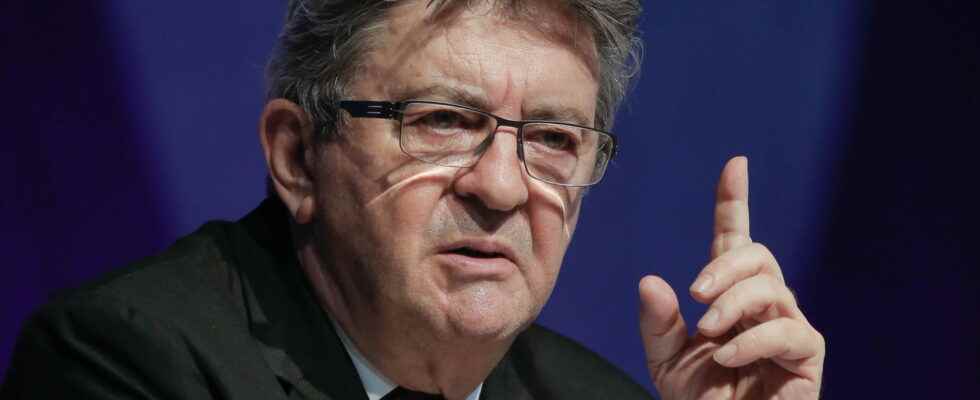PURCHASING POWER LAW. The theme of purchasing power crystallizes all the attention before the second round of the legislative elections, and the duel between Nupes and Ensemble promises to be extremely tight. What are the proposals of the two camps? The duel in 5 propositions.
[Mis à jour le 16 juin 2022 à 09h58] Purchasing power remains the key theme of this between-two rounds of legislative elections. And this year, after the re-election of Emmanuel Macron on April 24, a duel crystallizes all the attention before the second round of these legislative elections: Nudes (new left-wing alliance led by Jean-Luc Mélenchon) against Together! (the new name of the majority party). The two groups arrived neck and neck after the first round of the legislative elections on 12th June last, with around 25% of the vote each. the national rally arriving in third position with 18% of the vote. And the least we can say is that Nupes et Ensemble! are fighting a hell of a battle on the ground of purchasing power to try to obtain a majority in the National Assembly, this Sunday, June 19. So, what are the 5 key proposals from both camps to boost your purchasing power? Dueling:
The 5 proposals of the Nupes in favor of your purchasing power:
- Smic revaluation: €1,500
- Increase in retirement pensions: €1,063 minimum
- Increase in the index point of civil servants: +10%
- Blocking the price of basic necessities: petrol, food, energy
- Wealth tax return (ISF): to finance his plan
Ensemble’s 5 proposals to preserve your purchasing power:
- Tripling of the Macron bonus: up to 6,000 euros net of tax
- Removal of the tv license fee: 138 euros less tax
- Introduction of a minimum pension: €1,100
- Prime fuel extended in 2022: 18 cents per liter
- Indexation of pensions to inflation
The rise in consumer prices is expected to continue in the coming months. INSEE predicts an increase between 5% and 5.4% next May, enough to push the government to act, by proposing a salvo of measures to try to support modest households and low wages. In this sense, several proposals already mentioned by the executive for many weeks should indeed come into force. Here they are :
- Food voucher: its amount could reach 60 euros and should benefit young people aged 18 to 25, as well as low-income families with children. The measure could concern 8 million people in France with the aim of allowing low wages to consume French, organic, and preferably in short circuits. The food check should not come into force this year, replaced by inflation aid of 150 euros.
- Macron bonus: the Head of State intends to triple the amount of the exceptional purchasing power bonus to reach up to 6,000 euros in certain cases. It concerns employees whose salary does not exceed 3x the minimum wage.
- RSA: the active solidarity income should be conditional on a minimum of activity on the part of the beneficiaries. The most likely track remains 20 hours of training per month. A way for the executive to promote the return to employment.
- TV fee: it was a campaign promise the audiovisual fee will be abolished in 2022. Its amount was 138 euros in mainland France and 88 euros in Overseas for each household with a television.
- Indexation of pensions to inflation: In addition to the introduction of a minimum pension of 1,100 euros, Emmanuel Macron wishes to index retirement pensions to the level of inflation to take into account the sharp rise in prices which should be durable.
- Fuel bonus: the government could extend the discount of 18 cents on a liter of fuel, and even set up new, more targeted aid for those who have no choice but to use their vehicle to get to their workplace.
As announced by the spokesperson for the current government Gabriel Attalthe various measures forming part of the purchasing power law should be announced “after the legislative elections“. A way of respecting the timetable set by Emmanuel Macron and his various media outlets, regularly announcing the implementation of these measures by the summer. The legislative elections will be held on June 12 and 19. An announcement of the purchasing power bill is therefore not to be expected before, at least, the July 6, 2022.
Invited to the microphone of France Info Friday June 10, the Minister of the Budget Gabriel Attal took the opportunity to recall its complexity of implementation before being a little more optimistic about a possible start-up in the months to come: “It’s quite complicated technically to be able to have aid that targets certain products in certain places. We hope to be able to present this measure in 2023″. Preceded by the introduction of inflation aid, the energy check could therefore simply be postponed for a few months. Why not make it official in the first quarter of 2023? For the time being, the project is on hold.
To fight against the general increase in consumer prices, and in particular food prices, Prime Minister Elisabeth Borne announced the creation of aid paid directly into the bank account of beneficiaries, from the start of the 2022 school year. information is not yet known, but the scheme could well resemble the old inflation bonus of 100 euros introduced by Emmanuel Macron.
